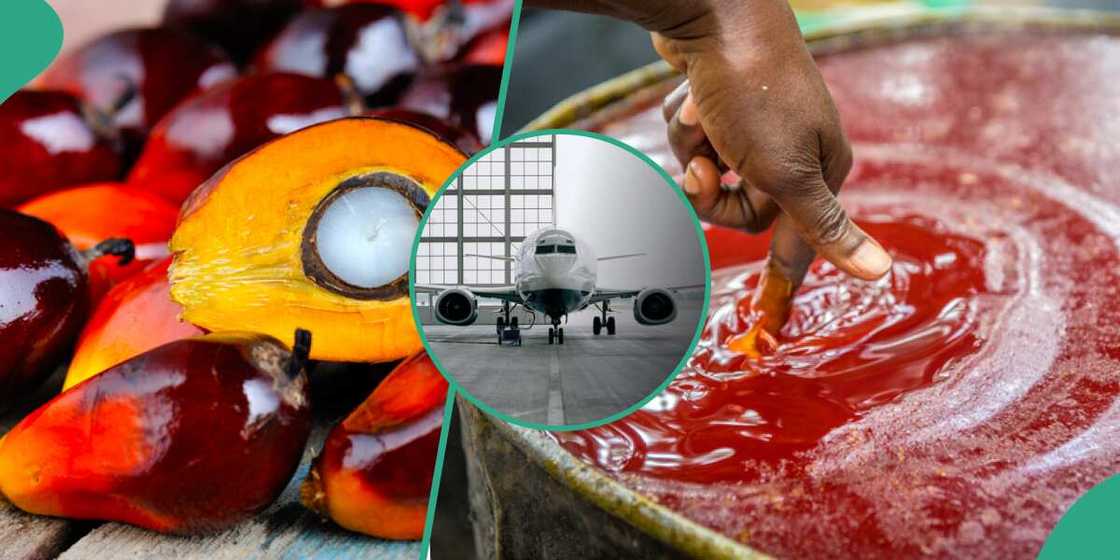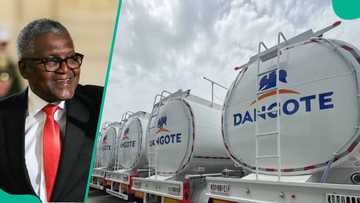Palm Oil Dealers Quote New Price as Plantation Owners Intervene
- Palm oil producers have expressed plans to reduce and stabilise the price of the production nationwide
- The Plantation Owners Forum of Nigeria (POFON) said its members are committed to keeping palm oil prices stable this year
- Emmanuel Ibru, the forum’s chairman, said POFON members are expanding their plantations to close supply gaps in the market
Legit.ng’s Pascal Oparada has reported on tech, energy, stocks, investment and the economy for over a decade.
As inflation bites deeper, there is hope for Nigerian families who rely on palm oil daily.
The Plantation Owners Forum of Nigeria (POFON) has announced steps to reduce and stabilise the price of palm oil nationwide.

Source: Getty Images
Plantation owners pledge to keep prices stable
The group said members are expanding their plantations and adjusting market strategies to keep prices steady throughout the year.
Chairman of POFON, Emmanuel Ibru, said the forum is fully committed to keeping palm oil affordable, especially as prices usually fluctuate between peak and off-peak seasons.
“In Nigeria, we have two seasons for palm oil. During the peak season, prices drop, and during the lean season, prices rise,” he said. “This year, our members have resolved to minimise those fluctuations so Nigerians don’t feel the price shocks,” he said.
He spoke after a strategic meeting of POFON members held in Benin City, Edo State.
Strategy to help households amid inflation
Ibru explained that stabilising palm oil prices is part of POFON’s contribution to easing the cost-of-living crisis in the country.
“Despite the rising costs of inputs and inflation, we believe we must ensure a fair and steady price profile in the market,” he said.
According to him, the group’s strategy will help prevent price volatility and make the product more predictable for everyday Nigerians.
Palm oil producers expand capacity nationwide
To meet growing demand and fill supply gaps, POFON members are expanding their plantations and production capacities.
Ibru revealed that long-standing companies such as Presco and Okomu Oil Palm are growing their holdings. Meanwhile, new entrants like Dufil, Saro Africa, and others have begun operations in Edo state and beyond.
He said that over the past 10 years, POFON and its members have steadily increased production to reduce reliance on imports and meet local demand.
Price stability aimed at market confidence
By working to keep palm oil prices consistent, the association hopes to bring some level of certainty back to the market, which could benefit both sellers and consumers.
“If we can maintain a stable price range even in the off-season, it will be easier for both traders and households to plan their spending,” Ibru added.
A move to strengthen food security
Palm oil is a household staple in Nigerian kitchens, used for everyday meals.
POFON’s new direction aligns with wider efforts to reduce food inflation and increase domestic production, a key focus of the federal government’s economic plans for 2025.

Source: Getty Images
Indonesia raise export tax on palm oil
A prior report by Legit.ng disclosed that Indonesia, the world’s top palm oil producer, has raised its export tax on crude palm oil (CPO) from 7.5% to 10%, effective May 17, 2025.
The policy, the Indonesian government said, aimed at bolstering its domestic biofuel program and supporting smallholder replanting schemes.
The Indonesian Ministry of Finance said additional taxes on a range of palm oil products would help finance replanting activities and fund the production of both biodiesel and palm oil, a key commodity that contributes 4.5% to the country’s GDP and employs about 3 million people.
Rabiu signs deals to build palm oil refinery
Legit.ng earlier reported that Abdulsamad Rabiu, the founder of BUA Group, one of Africa’s largest food, mining, manufacturing, and industrial conglomerates, signed a series of industrial and agro-processing agreements in Dubai.
Among the deals was an agreement to construct a 1,000 metric tonnes-per-day palm oil refinery and a 20MW gas power plant.
The deals, which were struck in BUA Group’s Middle East Office in Dubai, also include plans to build 10 production lines dedicated to fried instant noodles.
Proofreading by Funmilayo Aremu, copy editor at Legit.ng.
Source: Legit.ng





